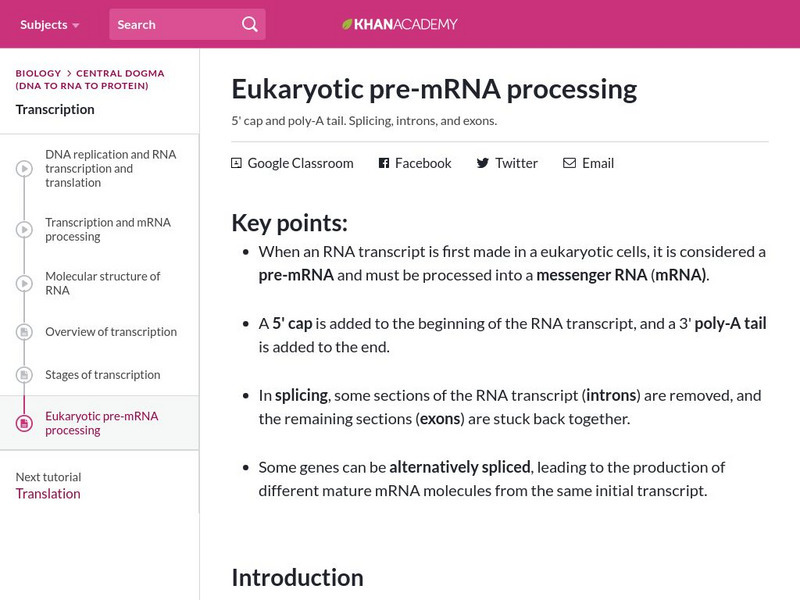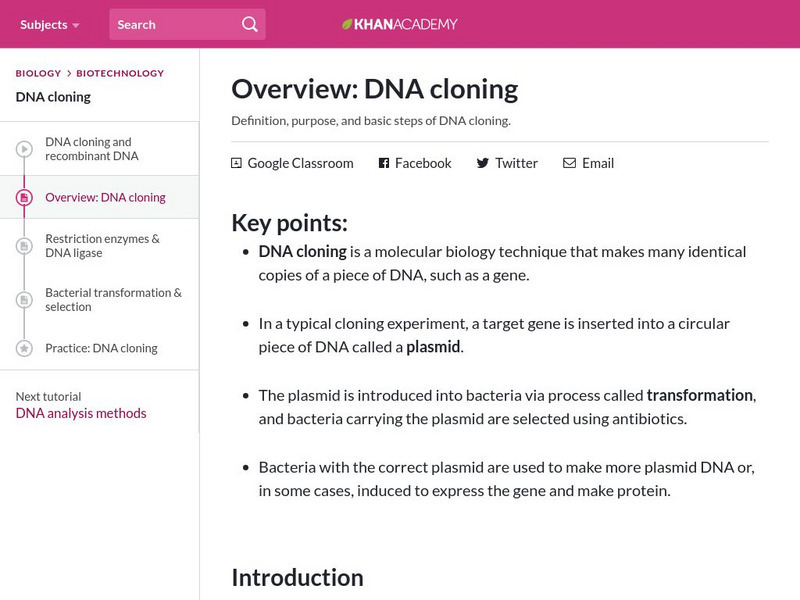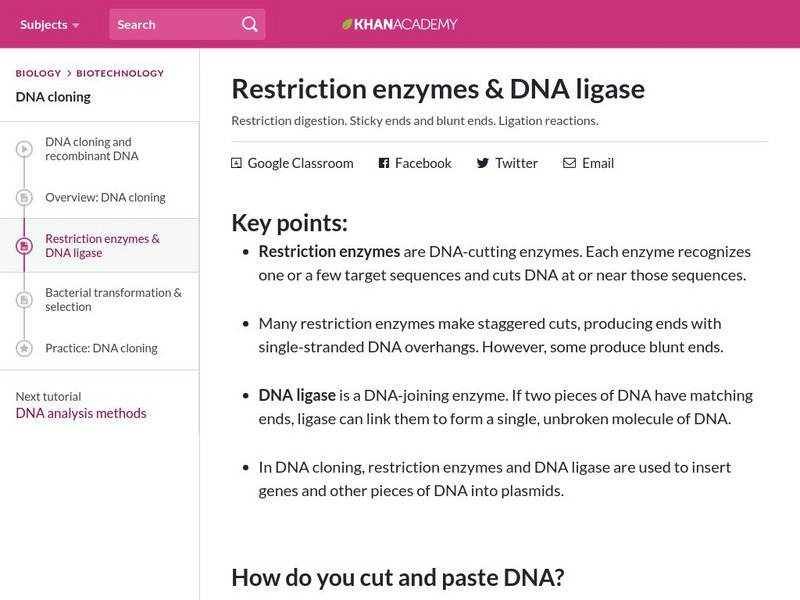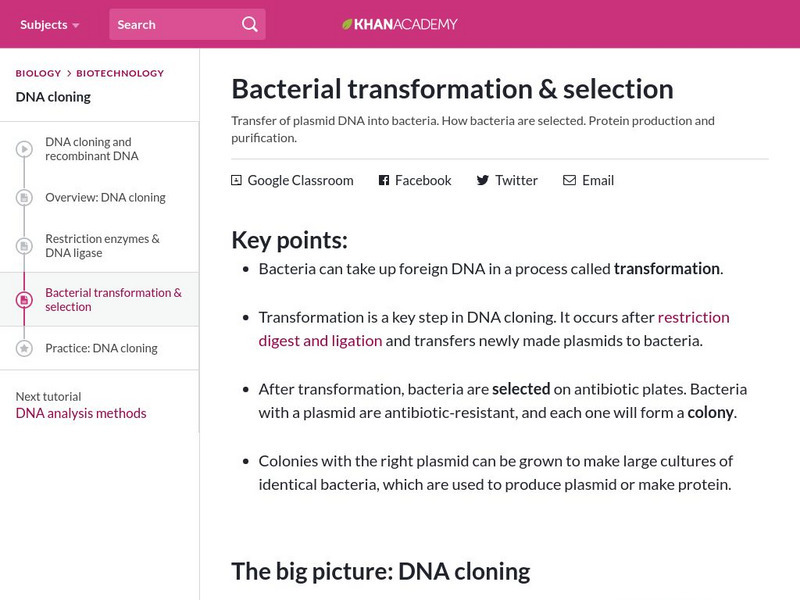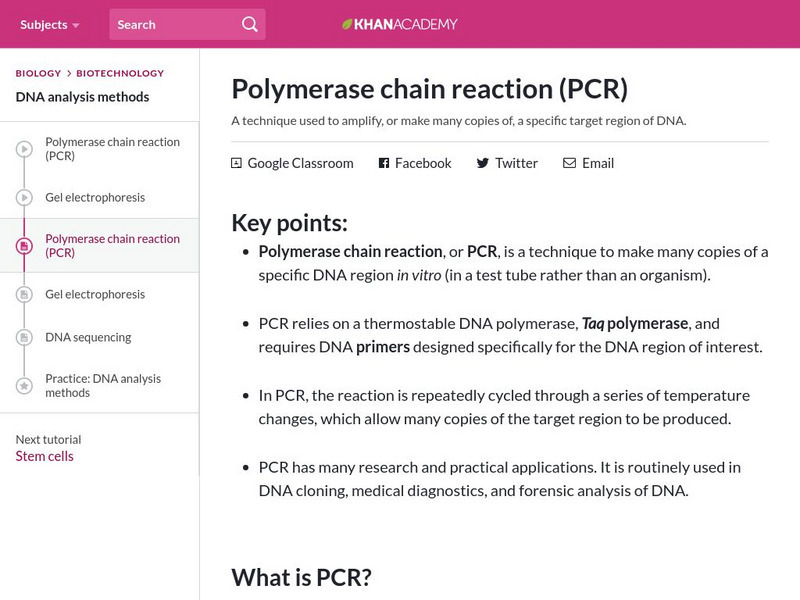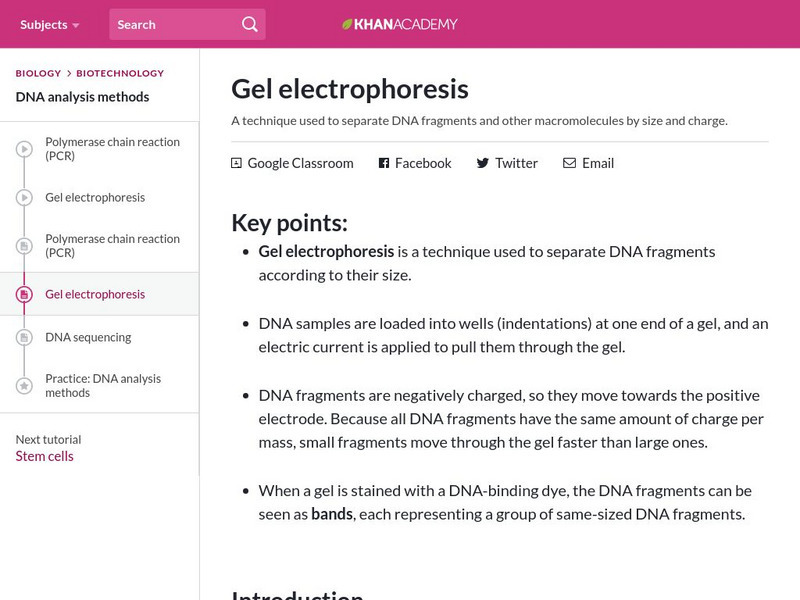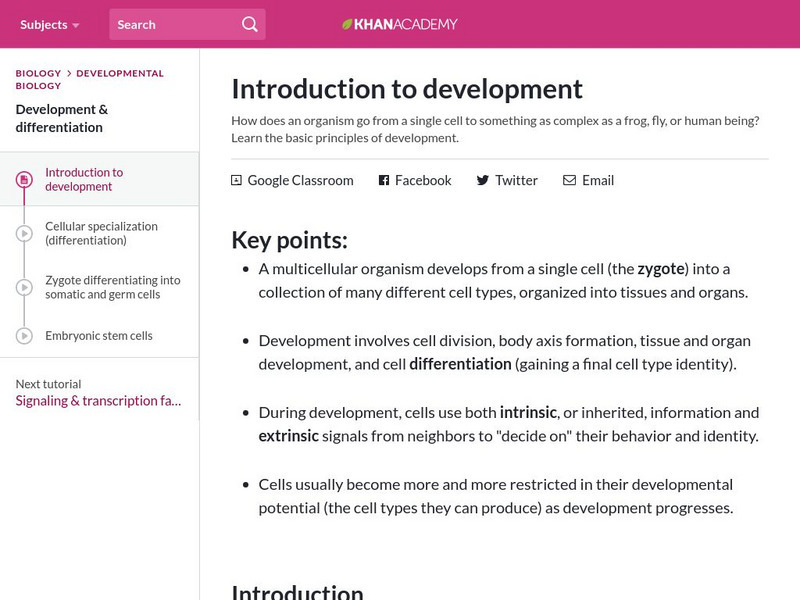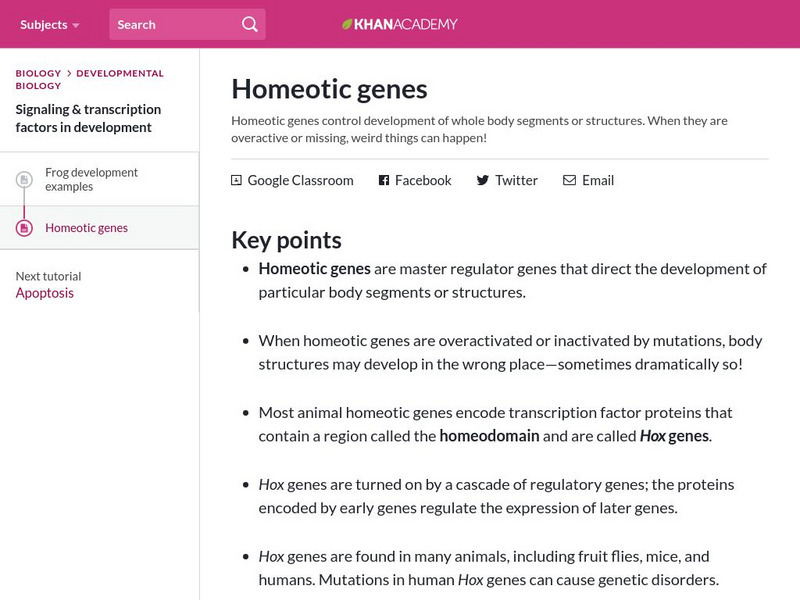Khan Academy
Khan Academy: Stages of Transcription
An in-depth looks at how transcription works including initiation, elongation, and termination.
Khan Academy
Khan Academy: Eukaryotic Pre M Rna Processing
Learn about the role of the chemical groups on the ends of the pre-mRNA called the 5' cap and poly-A tail. Also learn about splicing, introns, and exons.
Khan Academy
Khan Academy: Overview of Translation
Find out how the nucleotide sequence of an mRNA is translated into the amino acid sequence of a polypeptide (protein).
Khan Academy
Khan Academy: T Rn as and Ribosomes
Learn about structure and roles of transfer RNAs and ribosomes including codons, anticodons, and wobble. Also find out about Aminoacyl-tRNA synthetases.
Khan Academy
Khan Academy: Protein Targeting
Learn how molecular labels are used to direct proteins to different parts of the cell and to the cell exterior.
Khan Academy
Khan Academy: Overview: Gene Regulation in Bacteria
Get an overview of operons, regulatory DNA sequences, and regulatory genes. Also, explore repressor and activator proteins.
Khan Academy
Khan Academy: The Lac Operon
Learn about the regulation of genes for lactose utilization. lac repressor, catabolite activator protein, and cAMP.
Khan Academy
Khan Academy: The Trp Operon
Learn how the trp repressor controls gene expression. Find out about feedback inhibition and attenuation.
Khan Academy
Khan Academy: Overview: Eukaryotic Gene Regulation
Get the big picture of eukaryotic gene regulation, and learn how different genes are expressed in different cell types.
Khan Academy
Khan Academy: Transcription Factors
Find out some general and specific transcription factors. Learn about transcription initiation complex and looping as well as combinatorial regulation.
Khan Academy
Khan Academy: Regulation After Transcription
Learn the importance of alternative splicing, miRNAs, and siRNAs, translation initiation factors, and protein modifications during the process of protein synthesis.
Khan Academy
Khan Academy: Intro to Biotechnology
An overview of what biotechnology is including DNA technology. Also explore ethical questions in biotechnology.
Khan Academy
Khan Academy: Overview: Dna Cloning
Explore the definition, purpose, and basic steps of DNA cloning.
Khan Academy
Khan Academy: Restriction Enzymes & Dna Ligase
Learn about restriction digestion, where the result has sticky ends and blunt ends. Also find out about ligation reactions.
Khan Academy
Khan Academy: Bacterial Transformation & Selection
Learn about the transfer of plasmid DNA into bacteria. Also find out how bacteria are selected, and how proteins are produced and purified.
Khan Academy
Khan Academy: Polymerase Chain Reaction (Pcr)
A technique used to amplify, or make many copies of, a specific target region of DNA.
Khan Academy
Khan Academy: Gel Electrophoresis
Learn about the technique used to separate DNA fragments and other macromolecules by size and charge.
Khan Academy
Khan Academy: Dna Sequencing
Learn how the sequence of nucleotide bases (As, Ts, Cs, and Gs) in a piece of DNA is determined.
Khan Academy
Khan Academy: Introduction to Development
How does an organism go from a single cell to something as complex as a frog, fly, or human being? Learn the basic principles of development.
Khan Academy
Khan Academy: Frog Development Examples
How do you build a frog from a single cell? Learn how body axes are established and nerve tissue is induced in frog embryos.
Khan Academy
Khan Academy: Homeotic Genes
Homeotic genes control development of whole body segments or structures. When they are overactive or missing, weird things can happen!
Khan Academy
Khan Academy: Prokaryote Structure
This tutorial gives an overview of prokaryotes (bacteria and archaea) along with an explanation of structural features of prokaryotic cells.
Khan Academy
Khan Academy: Prokaryote Reproduction and Biotechnology
Learn how prokaryotes reproduce by binary fission, and find out the use of E. coli bacteria in molecular biology.
Khan Academy
Khan Academy: Genetic Variation in Prokaryotes
Study the mechanisms that generate variation in prokaryote populations. Also learn about transduction, transformation, conjugation, as well as transposable elements.



